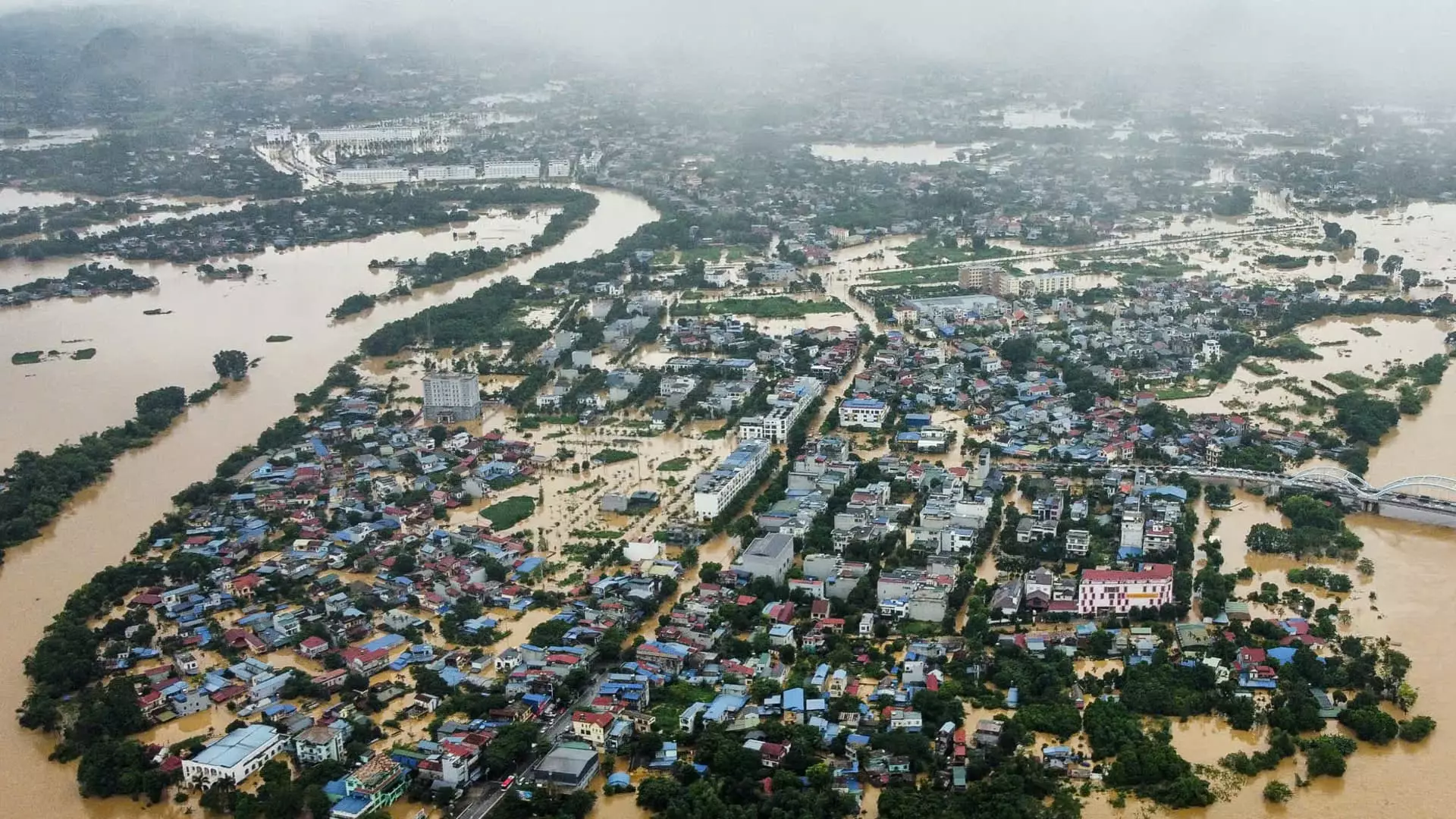The Indo-Pacific region, rich in diversity and complexity, continued to navigate a challenging path in 2024. This article delves into the pivotal events and trends that marked the year, exploring both the adverse conditions that prevailed and the flickers of optimism that emerged amidst turmoil. The ongoing impact of climate change, demographic shifts, political upheaval, and cultural phenomena painted a multifaceted picture of the region’s current condition.
One of the most striking features of 2024 has been the alarming increase in climate-related disasters across Asia and the Pacific. The relentless nature of these calamities drew attention in stark contrast to the progress achieved in other areas. Natural disasters such as Typhoon Yagi, which wreaked havoc in November, showcased a growing vulnerability to extreme weather events. Unlike in the past, where singular catastrophic incidents—such as the 2004 Indian Ocean tsunami—captured global attention, 2024 revealed a pattern of ongoing crises that collectively contributed to the region’s suffering.
From typhoons and floods to intense droughts, the cumulative toll on human lives and economies has been catastrophic. Thousands became “climate casualties,” raising profound concerns about sustainability and resilience. Countries typically resilient to natural disasters found themselves on the back foot, with emergency responses stretched thin, infrastructure overwhelmed, and communities grappling with loss and recovery. The ramifications of climate change have transitioned from scientific discussions to stark everyday realities, underscoring the urgent need for comprehensive climate adaptation strategies.
As environmental crises intensified, another pressing issue loomed: declining fertility rates. East Asia, in particular, became the focal point of a demographic crisis, with countries like South Korea, Japan, and China experiencing record-low birth rates. This alarming trend raises questions about the future workforce and economic stability. The societal implications of a shrinking younger population along with an aging demographic present tangible challenges for policymakers.
The dynamics behind the falling fertility rates are multifaceted; traditional gender expectations have evolved, economic burdens related to housing and childcare have escalated, and women increasingly prioritize career advancement. Consequently, societies face the prospect of ‘super-aged’ populations, where a significant portion of citizens are over 65, burdening social systems and limiting economic growth.
Political volatility characterized 2024, marking a year of fluctuating leadership and democratic resilience. Notably, the political landscape in Bangladesh was marked by tension following a controversial election that saw heavy opposition boycotts. Prime Minister Sheikh Hasina’s tenure came to a tumultuous end under public pressure, illustrating the precarious nature of governance.
Meanwhile, in South Korea, an unexpected twist unfolded as President Yoon Suk-Yeol faced the repercussions of his party’s electoral losses, leading to martial law and subsequent impeachment proceedings. Yet, amidst this chaos, Taiwan emerged as a beacon of democratic vitality, showcasing the region’s capacity to maintain democratic processes in the face of challenges.
Elections in countries like India and Indonesia also demonstrated a blend of setbacks and successes, with some incumbents forced into coalition governance while others successfully transitioned power. These unfolding scenarios highlighted a diverse democratic evolution across the Indo-Pacific, reflecting a tapestry of experiences rather than a monolithic narrative.
While the narrative of hardship dominated the landscape, 2024 also saw the flourishing of soft power through cultural exports from South Korea, otherwise known as the Hallyu wave. The global impact of K-pop, K-drama, and K-cuisine flourished, showcasing South Korea’s ability to harness cultural elements as tools of international diplomacy.
The phenomenal success of Korean media, such as the gripping “Queen of Tears,” underscores how cultural output can bridge gaps between nations and foster global connectivity. With projections estimating that the economic benefits of Hallyu could reach a staggering $198 billion by 2030, the soft power generated by this phenomenon cannot be understated.
In a delightful twist, social media platforms erupted with the viral stardom of Moo Deng, a baby pygmy hippo. The charisma of this animal became a symbol of joy amidst the turmoil, reminding the world of life’s simple pleasures. The phenomenon drew international attention, leading to humorous interpretations in popular culture and engaging audiences through memes and fan accounts.
In reflecting on the events of 2024, the Indo-Pacific stands at a crossroads, grappling with severe challenges while also celebrating remarkable resilience and adaptability. The path forward necessitates a unified commitment to climate solutions, advocacy for demographic balance, and the nurturing of democratic values. Harnessing cultural strengths can offer pathways to healing and connection.
As the region anticipates a Year of the Snake, it embraces the complexities of its narrative—a story filled with adversity but also replete with possibilities. The juxtaposition of despair and optimism defines the spirit of the Indo-Pacific, urging a collective pursuit of sustainability, progress, and harmony.


Leave a Reply